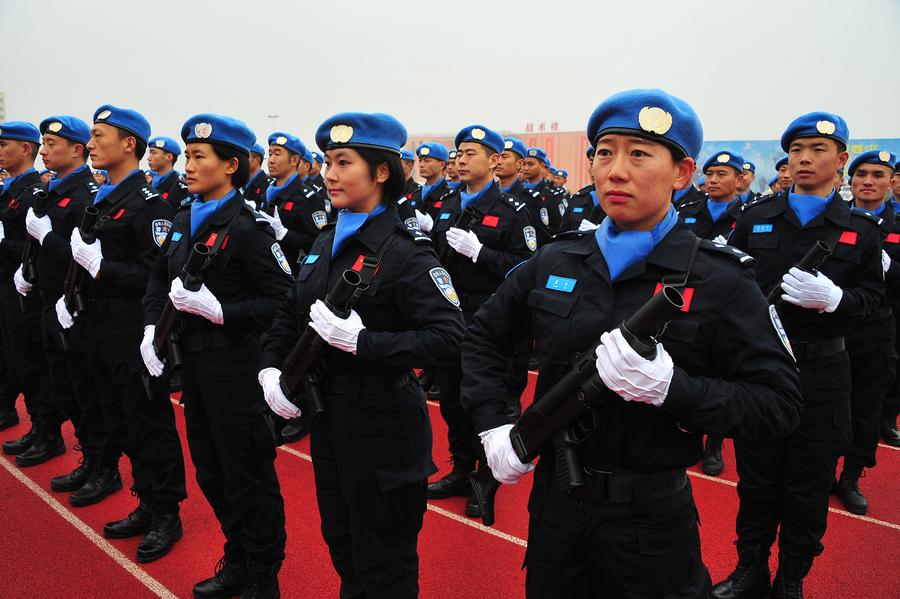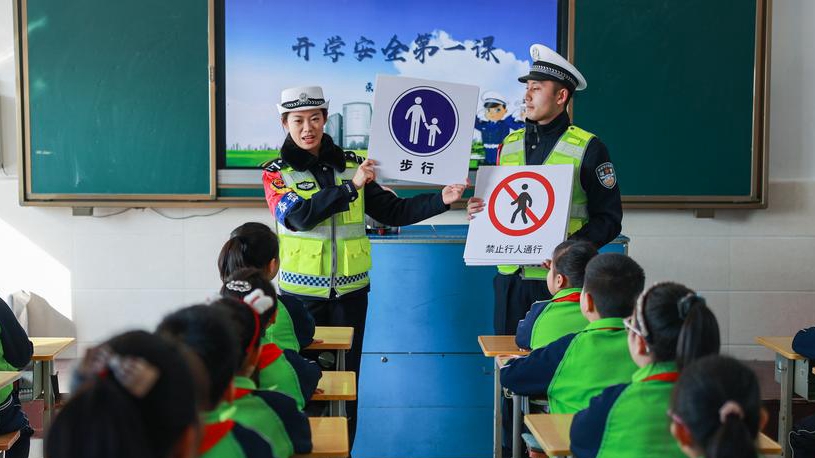BEIJING, May 29 (Xinhua) -- Several months ago, travel Youtuber JetLag Warriors from Canada posted a video online, in which the couple behind the account recounted a recent trip to Shanghai and spoke of the city's tidiness, friendliness and, in particular, safety.
Their impression of China was echoed by commenting viewers. "As someone who has worked in China for five years, I can tell you clearly that China is the safest country I have ever been in," read one of the comments.
In a world often disturbed by gun violence, ethnic clashes and even war, China, a country of 1.4 billion people from 56 different ethnic groups, has surprisingly stood out as a safe place to live.
According to a survey conducted by the National Bureau of Statistics, about 98.6 percent of China's population said they felt safe living in the country, highlighting the efforts of Chinese police force in promoting the implementation of the Peaceful China Initiative to a higher level.
CRIME RATES DOWN
Chinese police have in the past years resolutely combated activities of ethnic separatism and religious extremism. So far, no violent terror incidents have been reported for seven consecutive years, according to the Ministry of Public Security (MPS).
The ministry said on Monday that in 2023, the number of theft, robbery and fraud cases filed in China dropped nearly a third compared with 2019. Human trafficking cases declined by two thirds in five years. Drug crimes decreased three quarters to 42,000.
The number of criminal cases filed by Chinese police in 2023 dropped by 12.9 percent from 2019. Police across the country also handled 9.7 percent fewer public security cases last year compared to 2019, the MPS said.
Over the past five years, police busted over 5,200 criminal gangs and captured more than 1,600 fugitives overseas linked to criminal gangs, making headway in the campaign to combat organized crime and root out local bullies.
Nearly 400,000 economic criminal cases were cracked by the police during the five-year period, with over 230 billion yuan (about 32.35 billion U.S. dollars) of direct economic losses recovered. Consistent efforts were also put into cleaning and preserving cyberspace, as public security organs investigated 453,000 cyber crime cases in five years. About 1.95 million cases of telecom and internet fraud crimes were cracked during the five-year period.
EMPOWERED BY TECHNOLOGY
Faced with new challenges in the new era, a modern technology-powered police system with multi-layered functions for public security organs nationwide gradually came into being.
In Guangdong Province, south China, police use big data to guide public security operations, notably improving instant emergency responses down to the smallest urban units.
Since 2023, Guangdong has seen its best records in terms of the number of criminal cases filed and the number of cases solved, with the public sense of security index reaching 98.68 percent.
Assisted by technologies like DNA identification and data analysis tools, police have also been dedicated to solving backlog cases, with successes frequently reported across the country.
At a national video meeting on public security last month, the importance of big data in the new police operational model was highlighted to improve police capabilities and safeguard public security in a more meticulous manner.
INTERNATIONAL COOPERATION
In recent years, Chinese police have actively participated in global security initiatives and made a series of achievements in international law enforcement cooperation.
Since last year, the MPS has deepened law enforcement cooperation with Myanmar police to combat telecom and online fraud crimes, with a total of 49,000 Chinese suspects handed over to the Chinese side from last July up to now.
They included 63 alleged leaders, organizers and key members like Ming Guoping, Ming Julan and Ming Zhenzhen, all ringleaders of a telecom and online fraud criminal gang in northern Myanmar's Kokang Self-Administered Zone.
A white paper released by the State Council Information Office in January this year stated that China has joined 12 global counterterrorism conventions and facilitated the formulation of documents such as the Shanghai Convention on Combating Terrorism, Separatism and Extremism and the Shanghai Cooperation Organization (SCO) Member States Agreement on Border Defense Cooperation.

The MPS has also sent police units to six UN peacekeeping missions as well as the UN headquarters since 2019.
Jean-Pierre Lacroix, UN under-secretary-general for peace operations, said that China's commitment to continue sending troops and many important pledges in training, hosting international training courses, and supporting regional peacekeeping cooperation are very important. ■












